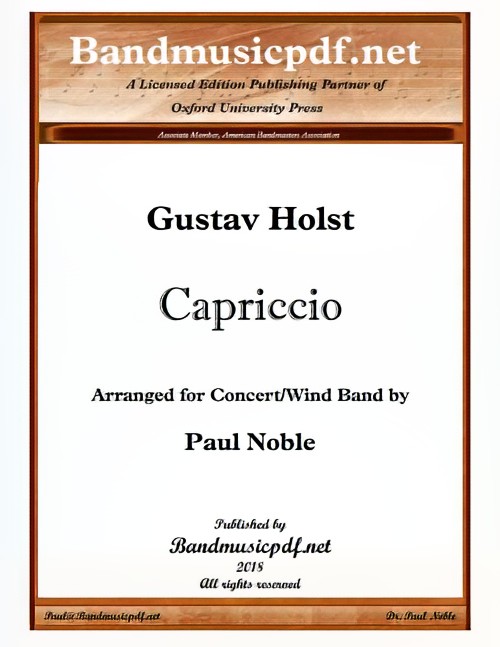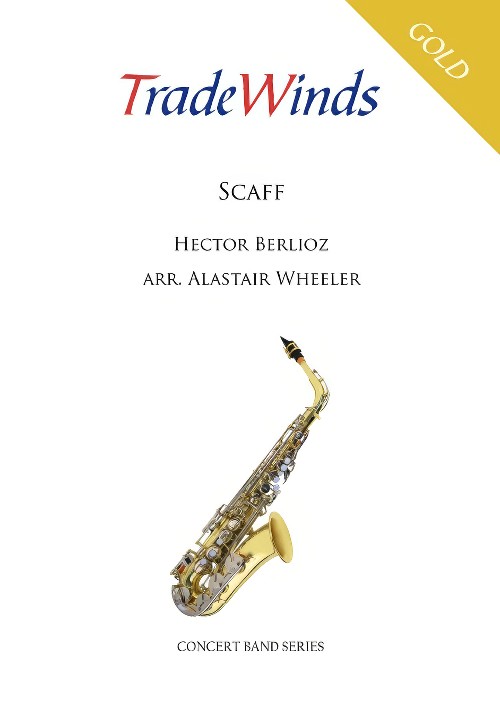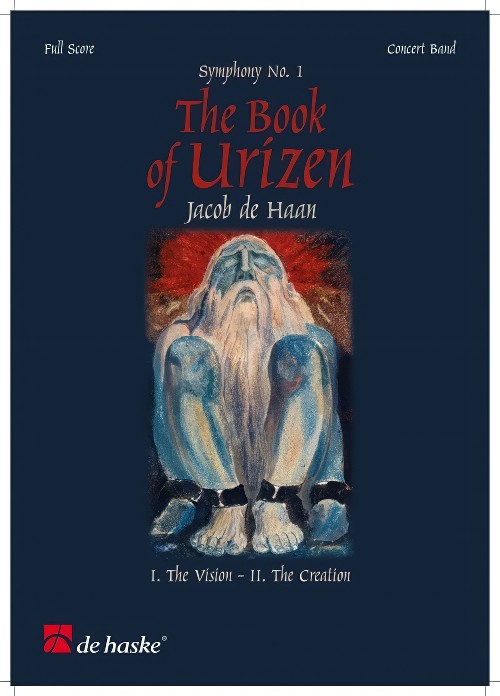Results
-
£14.95
Sonata for Clarinet No.2 in Eb - Score only - Johannes Brahms
This clarinet sonata was composed in 1894 for clarinetist Richard Mu?hlfeld. This was an interesting time in Brahms' life as he vowed he would retire from composing in 1890 but after he heard a performance of the Weber clarinet concerto No.1 and the Mozart clarinet quintet he so admired the soloist that he felt he should come out of retirement and compose 2 clarinet sonatas for him. These were completed in 1894 and first performed in a private concert in September of that year. These 2 sonatas were the last chamber pieces he composed before his death.
Estimated dispatch 7-14 working days
-
 £154.99
£154.99Achnaton - Jan Bosveld
The Egyptian pharaoh Amenhotep IV, better known as Achnaton, was the second son and successor of Amenhotep III. He reigned the New Kingdom from 1353 until 1336 BC. Achnatons lack of interest in the economic well-being of Egypt ushered ina revolutionary period in Egyptian history. His harsh reign induced much suffering under the population. During this period when it was customary for a pharaoh to have many wives, he had taken his cousin Nefertete to reign as queen at hisside. An elegant and very beautiful woman, she used her influence to ease the turmoil caused by Achnaton. Combined with her grace, her presence at public functions led to a greater popularity among her subjects than the pharaoh enjoyedhimself. Being mostly preoccupied with religious questions, he declared that all the other gods did not exist. There was only one god, the Aten, and it was the sun itself. It was now necessary to change his name: 'Amenhotep' meaning 'the god Amun is satisfied', because he didnt want to be associated with Amun or any of the other deities. He renamed himself 'Achnaton' which means 'servant of the Aten' -- a much more appropriate title! In the sixth year of his reignAchnaton also moved the capital to a brand new city called Achet-Aton ('the Horizon of the Aten') which was where Tel el-Amarna stands today. He did this to further isolate himself from the 'old' religion, since the previous capital Thebes was thecentre of worship of Amun. This new religion created an up rise among the population and high priests. In spite of Nefertetes influence, the falling economy and religious conflict resulted in the decline of the Egyptian empire. Hoping toforget it ever happened, people later tried to eradicate all traces of Achnaton and his successors rule by smashing their statues, mutilating their mummies, and ruining their relief carvings. From that moment on he was remembered as the'heretic king'. This composition was partially funded by the 'Prins Bernhard Cultuurfonds'.
Estimated dispatch 7-14 working days
-
 £149.40
£149.40O Helga natt - Adolphe Charles Adam
O Holy Night is a very well-known Christmas carol. The origin of the carol is French beginning with the words: "Minuit! Chrtiens, c'est l'heure solennelle". It is about the birth of Jesus and was written in 1843 by a wine merchant and poet by the name of Placide Cappeau (1808 77). He turned to the composer Adolphe Adam (1803 56) and asked him to write a suitable melody. The result was brilliant and the carol was premiered in Cappeau's home town Roquemaure in 1847 by the opera singer Emily Laurey. Based on Cappeau's French text, the English version was written in 1855 by an American Unitarian (Calvinist) minister by the name of John Sullivan Dwight (1813 93). Adolphe Adamwas the son of the pianist and composer Louis Adam (1758 1848), who did not want his son to follow in his foot-steps as a musician. However, Adolphe wanted otherwise, and already at the age of 17 he was accepted to study at the music conservatoire in Paris. He was a student under Franois Adrien Bo eldieu and composed several comical operas that became successful. After the July-revolution 1830 Adam moved to London. He worked for a couple of years before returning to Paris, where he founded a new opera house in 1847, the Th tre national. After the revolution in 1848 it had to close and Adam was ruined, why he had to go back to composing. In 1856 he concluded the ballet Le Corsaire, which together with the ballet Giselle are his most performed works today.
Estimated dispatch 7-14 working days
-
 £140.00
£140.00Capriccio (Concert Band - Score and Parts) - Holst, Gustav - Noble, Paul
The following notes have been excerpted by the arranger from those presented in the Introduction by Imogen Holst, daughter of Gustav Holst: Holst wrote this work in the spring of 1932, while he was guest Lecturer in Composition at Harvard University. He had been asked by Nathaniel Shilkret to write 'a short radio piece, not longer than five or six minutes.' for a composers' series on folk music themes. Holst wrote to me on 13 May 1932, saying: 'On May 1 I started sketching a piece for Shilkret's Radio jazz band in New York. I finished the sketch on the 4th and the full score on the 8th... Shilkret wanted something on American airs but I've left them out because I prefer my own so he may reject the thing.' Shilkret was enthusiastic about the piece, but he was unable to use it for his series. 'I hate to give it up,' he told the composer, 'but I cannot play it because it is not based on a definite English or American folk theme.' Holst never revised his hurriedly-written work, probably because he had too many other things to write during the remaining two years of his life, when he was having to spend a good deal of his time in hospital. The autograph manuscript of his original full score is in the British Library, MS Add.47833. The work had no name: Holst referred to it either as his 'Jazz band piece' or as 'Mr. Shilkret's Maggot.' The score needed editing. There were gaps and patches, with incomplete dynamics and phrase marks. I made the version for orchestra and named it 'Capriccio' in spite of the viola's (now saxophone's) expressive opening, because from the moment of the marimba's first animated remark there can be no doubt about the mood of the music. - Imogen Holst (1968)
Estimated dispatch 7-14 working days
-
 £69.95
£69.95Scaff (Concert Band - Score and Parts) - Wheeler, Alastair
This clarinet sonata was composed in 1894 for clarinetist Richard M?hlfeld. This was an interesting time in Brahms' life as he vowed he would retire from composing in 1890 but after he heard a performance of the Weber clarinet concerto no. 1 and the Mozart clarinet quintet he so admired the soloist that he felt he should come out of retirement and compose 2 clarinet sonatas for him. These were completed in 1894 and first performed in a private concert in September of that year. These 2 sonatas were the last chamber pieces he composed before his death.
Estimated dispatch 7-14 working days
-
 £13.95
£13.95Scaff (Concert Band - Score Only) - Wheeler, Alastair
This clarinet sonata was composed in 1894 for clarinetist Richard M?hlfeld. This was an interesting time in Brahms' life as he vowed he would retire from composing in 1890 but after he heard a performance of the Weber clarinet concerto no. 1 and the Mozart clarinet quintet he so admired the soloist that he felt he should come out of retirement and compose 2 clarinet sonatas for him. These were completed in 1894 and first performed in a private concert in September of that year. These 2 sonatas were the last chamber pieces he composed before his death.
Estimated dispatch 7-14 working days
-
 £421.99
£421.99The Book of Urizen (Movements I: The Vision and II: The Creation) (Soprano, Narrator and Concert Band - Score and Parts) - De Haan, Jacob
The Book of Urizen is a work for concert band, solo soprano, and a male narrator in which sound collages of religious expressions are used. The piece is inspired by the compelling visionary poem of the same name (which the poet illustrated himself) by the Englishman William Blake (1757-1827), who occupies a unique position in western literature and the visual arts. He was not just a poet and a writer, but he was also a graphic artist, a painter, an illustrator, a spiritualist, a religious visionary, and a mystic philosopher. For the performance of this work, a professional sound system, including two microphones and a CD player, is needed. The three sound collages are three separate tracks on the enclosed CD and can be played easily at the right moment.The Book of Urizen bears resemblance to Genesis and Exodus, of which the contents form the basis of the Christian, Jewish, and Islamic faith. Blake adhered to the principle that all religions are in fact one, and that deities reside in human beings. In The Book of Urizen this is represented in "The Net of Religion," which is spanned over the earth by Urizen. The sound collages, compiled by Jacob de Haan in the studio, find their origin in Jerusalem, the Holy City, where the afore-mentioned faiths come together.In the first movement of this composition, The Vision, Urizen prepares his vision of the world, and he presents this to the "Eternals." His vision is rejected, and Urizen locks himself up in his own abstract world. When he does emerge again, he is confronted with rage by the gathered Eternals. Urizen flees the wrath of the Eternals, "the flames of eternal fury," and enwombs himself in his own world. When the Eternals see Urizen in his "stony sleep," they wonder if this is death. The blacksmith Los is torn by grief because of the isolation of Urizen. It brings him to rouse his fires, prepare his forge, and to give Urizen's world concrete form.In the second movement, The Creation, Urizen's world, but also man, woman, and child are created. Los is horrified with the appearance of Urizen's body. He mourns and pities Urizen, and from his blood a female form comes into being, with the name Enitharmon. The Eternals, fearful of the female form, decide to erect a tent to obstruct their view to eternity. Enitharmon and Los beget a son, called Orc. Los baptizes him as a child of the "fallen world." Orc is fed at Enitharmon's breast, which makes a girdle of jealousy restrict Los' chest. He takes the child to the top of the mountain and chains him down. The cries of Orc awaken Urizen, who explores his world creating instruments of scientific measurement to do so. Los encircles the face of Enitharmon from the sight of Urizen and Orc. She then populates the earth by giving birth to an enormous race.The Web, the third movement of The Book of Urizen, is available in a separate set.
Estimated dispatch 7-14 working days
-
 £154.99
£154.99Achnaton Wind Band Set (Score & Parts)
The Egyptian pharaoh Amenhotep IV, better known as Achnaton, was the second son and successor of Amenhotep III. He reigned the New Kingdom from 1353 until 1336 BC. Achnatons lack of interest in the economic well-being of Egypt ushered in a revolutionary period in Egyptian history. His harsh reign induced much suffering under the population. During this period when it was customary for a pharaoh to have many wives, he had taken his cousin Nefertete to reign as queen at his side. An elegant and very beautiful woman, she used her influence to ease the turmoil caused by Achnaton. Combined with her grace, her presence at public functions led to a greater popularity among her subjects than the pharaoh enjoyed himself. Being mostly preoccupied with religious questions, he declared that all the other gods did not exist. There was only one god, the Aten, and it was the sun itself. It was now necessary to change his name: 'Amenhotep' meaning 'the god Amun is satisfied', because he didnt want to be associated with Amun or any of the other deities. He renamed himself 'Achnaton' which means 'servant of the Aten' -- a much more appropriate title! In the sixth year of his reign Achnaton also moved the capital to a brand new city called Achet-Aton ('the Horizon of the Aten') which was where Tel el-Amarna stands today. He did this to further isolate himself from the 'old' religion, since the previous capital Thebes was the centre of worship of Amun. This new religion created an up rise among the population and high priests. In spite of Nefertetes influence, the falling economy and religious conflict resulted in the decline of the Egyptian empire. Hoping to forget it ever happened, people later tried to eradicate all traces of Achnaton and his successors rule by smashing their statues, mutilating their mummies, and ruining their relief carvings. From that moment on he was remembered as the 'heretic king'. This composition was partially funded by the 'Prins Bernhard Cultuurfonds'. 09:00
Estimated dispatch 7-14 working days
-
£115.00
The Ocean Beast (CB) - Pimpanit Karoonyavanich
If we hear about a beast, we would imagine a powerful and fierce creature. This composition work depicts a beast who's cursed to live under the ocean. Because everyone thinks that he's a heartless and evil beast, they run away from him every time they see him. Sometimes he appears at the surface of the sea and hope that he would be able to make friends with human. But all he got were severe wounds those made by the sailors who thought that he wanted to attack them. Nobody knows... that all he wants, is just only someone who just treat him like the others, not a beast.
Estimated dispatch 7-14 working days
-
£84.99
Bahn frei - Eduard Strauss
Eduard Strauss, the third son of Johann Strauss the Elder, was born on March 15, 1835, in Vienna. Originally, Eduard looked for employment in the diplomatic service, but he also studied music theory. He became a harpist in the Strauss orchestra in 1855. In 1862, he joined his two famous brothers Johann Jr. and Josef as a conductor of the family orchestra. Like that of his two brothers, his musical output was prolific: he wrote over 320 separate dances and marches. Apart from the exuberant Bahn Frei (Track Clear), which he wrote in 1869, and a handful of other fast polkas (he excelled in this particular dance form), his music is not as well known as that of his brothers.
Estimated dispatch 7-14 working days
